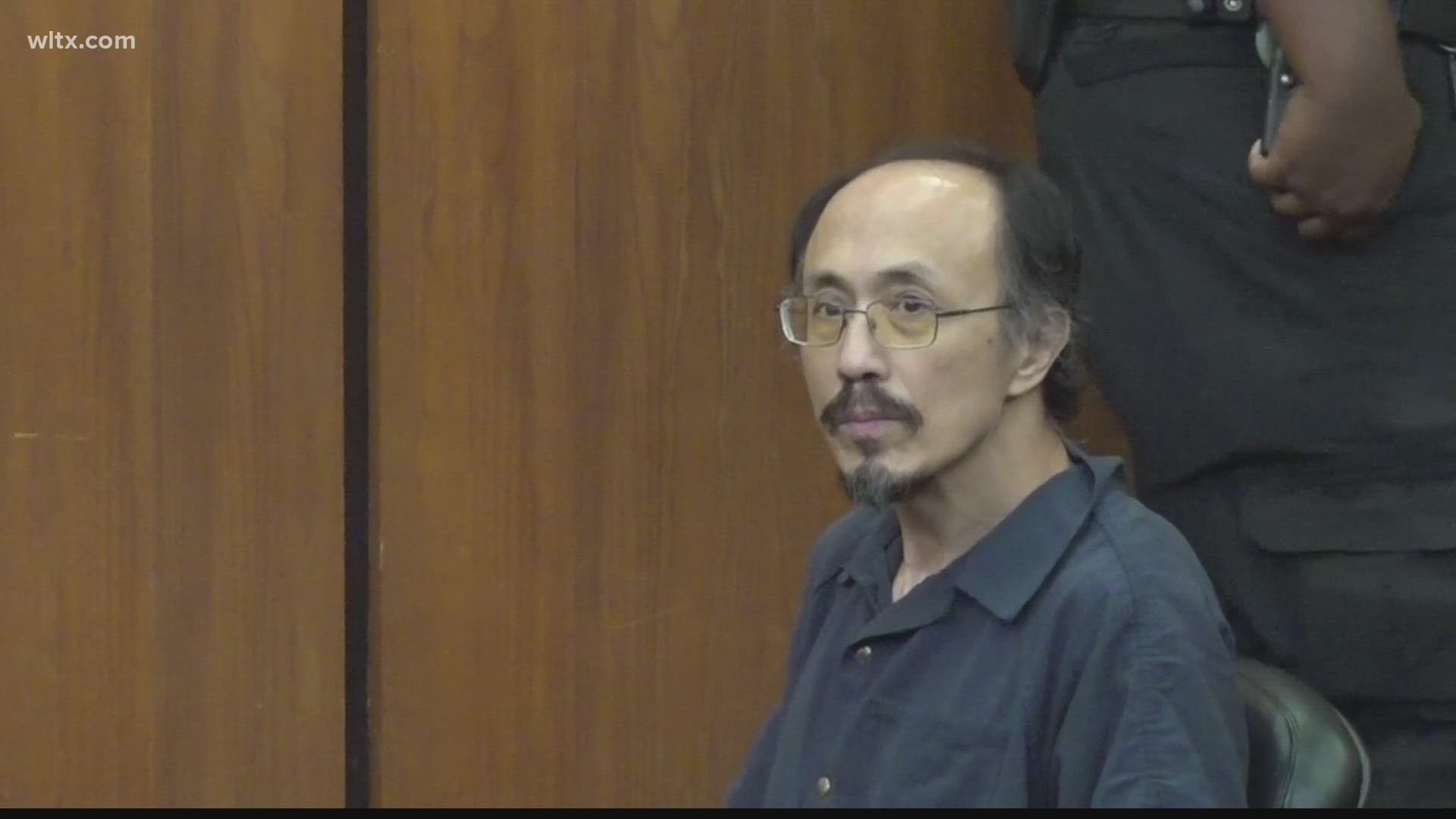COLUMBIA, S.C. — A court appearance today for the 58-year-old gas station owner is charged with murder in the death of a Richland County teenager.
Rick Chow is accused of chasing 14-year-old Cyrus Carmack-Belton out of his Parklane Road business and shooting the teen in the back. Investigators say Chow thought Carmack-Belton had stolen a water bottle, although investigators say the teen had not.
In court, the defense argued an investigation into electronic devices taken from the Chow's home, due to a search warrant, should be stopped.
“You’re asking me to stop it before it’s even started,” Judge Robert Hood said in court.
Chow's attorneys say there is information on the devices that are not relevant to the case.
“They just have no business having access to that information,” defense attorney Jack Swerling said. “There's documents and information that they got about time and plans, bank accounts, checks, different types of information related to the operation of a business. They have no business looking at that stuff so what other remedy would there be besides to come to court and ask them to not even look at that stuff?”
It’s why Swerling, along with defense attorney Joe McCulloch, filed a motion to suppress and called the emergency hearing.
“When an attorney from the defense decides to file a motion to suppress, ultimately what they're trying to do is prevent evidence from being used in the case against their client, meaning that there was a violation of the 4th amendment,” Taylor Bell details.
News 19 wanted to get some perspective on the arguments made in court today, so we reached out to Bell. He is not affiliated with this case in any way, but was able to give some insight on the proceedings.
“To me, this is more a motion that they wanted to prevent the government from accessing the defendant’s personal information, his family’s personal information and the business's information,” Bell says.
Swerling argues that there are personal records on the devices that are irrelevant to the case, but Circuit Deputy Solicitor April Sampson says South Carolina Law Enforcement Division (SLED) agents are looking for a document showing the store policy about shoplifting.
“Since part of what they’re stating is that they’re following store policy and that their employees are following store policy, they want to see if that’s true,” Sampson argued.
“It’s kind of fishing when the government gets to just look through an individual’s personal belongings unfiltered without anyone looking over them,” Bell explains.
It’s the reason Bell thinks the defense wants to stop the search, so nothing else that they find can be used against Chow. But if the prosecution were to find the shoplifting policy it’s looking for, what would that mean?
“We know that you can’t shoot people on your property. That’s the law. You can only act in self defense or under the stand your ground law, so to me it might not even matter. But I guess it’s the government looking to say, ‘Alright well they had this policy and they didn’t even follow his own policy’ to try and make him look like it was malice. Because if they’re arguing for murder, they’ve got to prove malice,” Bell shares.
It’s a plan that Sampson hinted at in court.
“The crime starts, in our position, from the minute he walks in the store when they start treating him differently than they did anybody else who came in that store,” Sampson said. “They followed him around, they ultimately chase him down and shoot him in the road that’s not in their store. And so it starts from the time he comes into the stores and, according to them, that’s per store policy.”
Bell says the defense has two options when it comes to disputing the murder charge.
“In ‘stand your ground,’ you’re going to have your place of business. It extends you have the right to meet force with force in your place of business, you have no duty to retreat,” Bell explains. “In terms of self defense, there are more factors that must come into play in that regard, but in this case it is possible that [the state is] going to argue that ‘stand your ground’ does not apply because [Chow] had exited the establishment.”
In court, the judge asked the prosecution to tell SLED agents to stop their search, saying everyone should be in a “holding pattern” while he reviews previous cases to determine precedent. A decision is expected next week.

